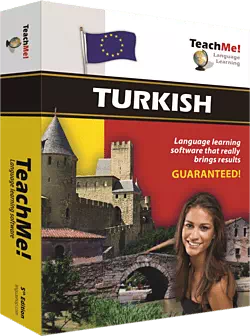Step 7 : Adjectives in Turkish
Adjectives are used to describe nouns. To get started, we suggest you learn the three Turkish adjectives büyük, küçük and peski (big, small, old). Using the nouns kitap, sandalye and (book, chair, door) which you learned in Step 3, learn to use each adjective with each noun (the big book, the old chair, the small door). You can scroll to the top of this page to see a short lesson about Turkish adjectives including useful examples. After you've learned to use the adjectives büyük, küçük and peski with the nouns kitap, sandalye and you can move on to Step 8 (Turkish Verbs).






